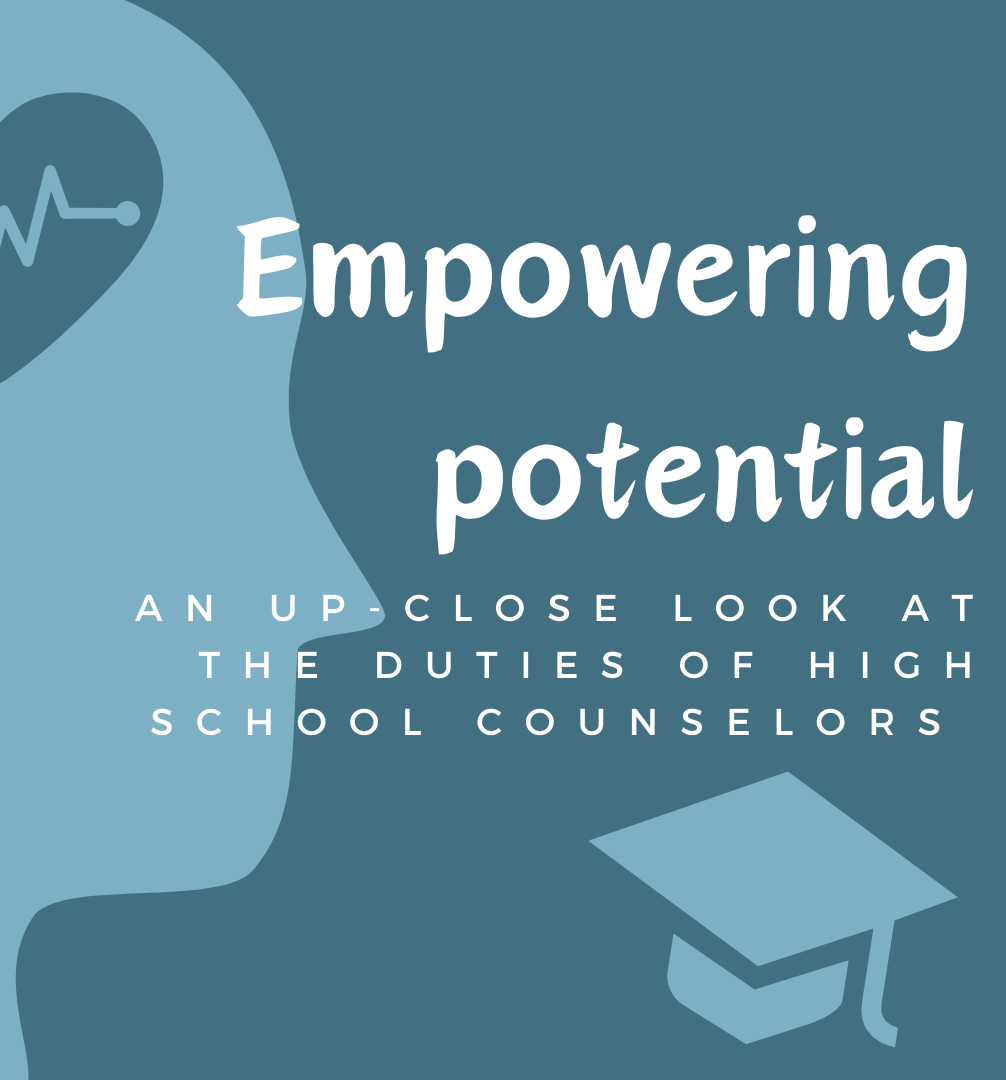Counselors organize schedules for over 2200 students each year to discuss scheduling conflicts, course selection, and other academic needs. However, another aspect of their job is their ability to provide mental health support to students.
This usually means that the daily schedule of a counselor can span from small, school-related conflicts to working through a student’s personal needs.
“There are some students during that time that will just email a quick question, but if it comes down to a mental health concern that we need to address quickly, we always make sure we have someone that’s able to respond to those needs,” lead counselor Alison Atkinson said.
Each day, one of the six counselors will be placed “on duty” to answer any concerns or immediate needs a student may have.
“Junior year brings a plethora of problems that you need the counselor’s help for, ” junior Lucia Aleman said. “I think if it’s important, the counselors will most likely answer and get back to you. You can always go in and ask for help, and they are usually good at giving advice and talking and listening to you if you need someone.”
When the second semester began, the school welcomed Erin Lucas as the new counselor for students with a last name beginning with Co-G. For students with last names toward the beginning of the alphabet, three counselors have come in and out of circulation within the past three years.
“Most of the learning curve for a new counselor is how to manage all of the day-to-day things that come up,” Atkinson said. “Every single one of us has bigger tasks that we’re dealing with. There are always big things, big projects that we may be working on, but [we are] also available for the unknown students that may come in during the day.”
Before counseling, Lucas was a business and marketing teacher at Vandegrift High School for eight years. She also managed extracurriculars with affiliated subjects, such as DECA and other entrepreneurship programs.
“I wanted to be a counselor to help students,” Lucas said. “I’m happy to help them with scheduling, course requests, and all of those things. I like to get to know students through that [process] because that’s what I do. If I can [give] support, like the emotional, mental health well-being side, then that’s what I want to be here for.”
While COVID-19 put a strain on employment among those in education, it allowed some to gain clarity and reach for new opportunities. To become a school counselor, one must obtain a master’s degree and have other educational experience.
“[But] there’s not a single course in grad school that’s about entering course schedules,” Lucas said. “It’s about helping kids deal with their daily lives, and how we can make a safe space and a good place for them to be.”
As school counselors work with students, they encourage parent involvement as well.
“Every student is going to be different and our work with them may look a little bit different, but the biggest thing we wanna do with parents is be a partner,” Atkinson said. “So as things come up, [we are] communicating with them while also being available for parents to email or call in their questions as well. That partnership is the biggest hope I have for [families].”


